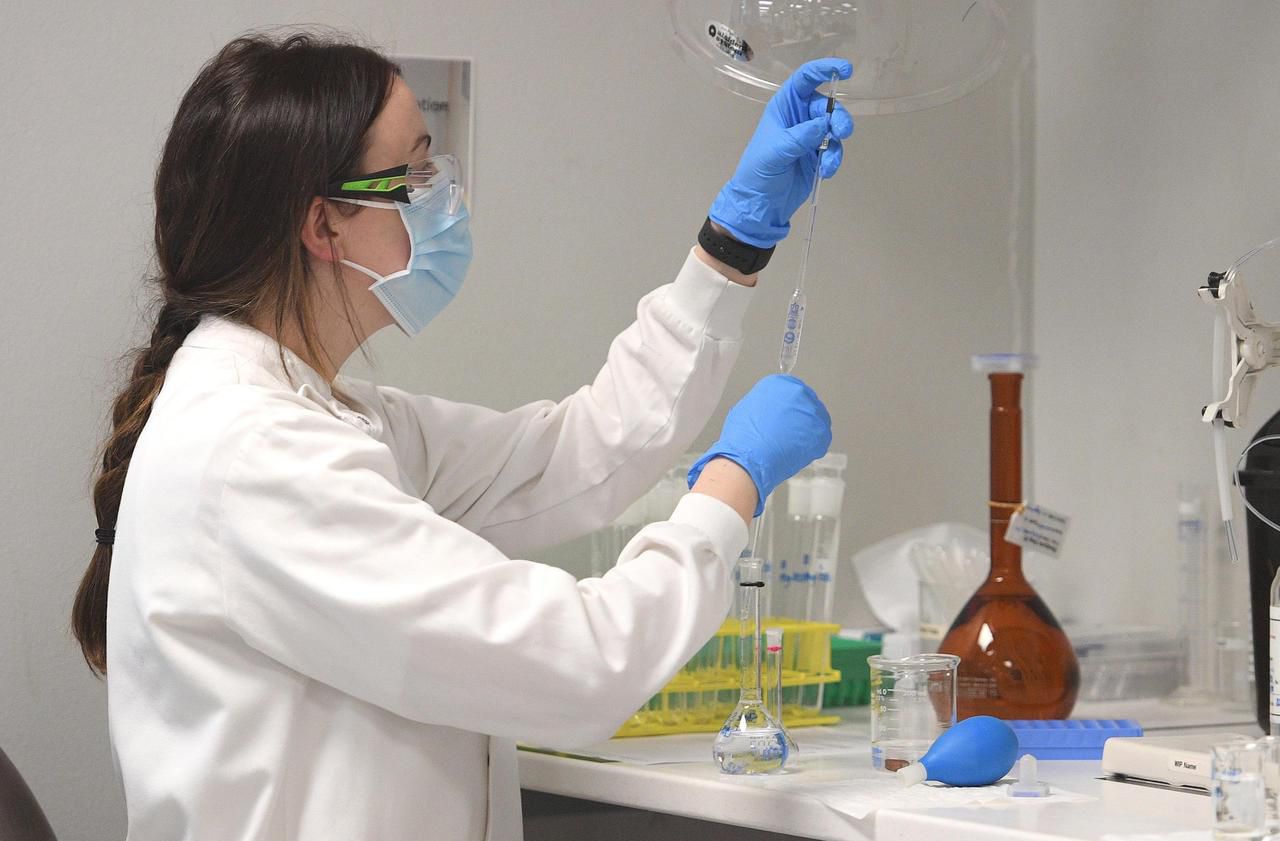A trivial incident or a serious warning?
In the final sprint engaged to find a vaccine against Covid-19, it is in any case an exit from the road that makes noise.
Pharmaceutical giant AstraZeneca announced on Tuesday it was suspending its human experimentation.
A volunteer who tested it in Great Britain (in phase 3, the last, intended to verify its safety and effectiveness) presents a "potentially unexplained disease", explains the Anglo-Swedish laboratory.
“Our standard review process has been triggered and we have voluntarily discontinued the vaccination to allow for review of the safety data by an independent committee,” he says.
Is this alarming?
For the University of Oxford, which is developing this vaccine with AstraZeneca, it is a break from “routine”.
“This is indeed the procedure, but you never stop a phase 3 trial lightly.
When we do it, it is because we are in the presence of a serious side effect.
We must then analyze it and see if it is attributable or not to the vaccine, ”comments Prof. Daniel Floret, vice-president of the technical committee on vaccinations at the High Authority for Health (HAS).
"This is not necessarily alarming, it was an expected event or almost", puts into perspective Jean-Daniel Lelièvre, head of the clinical immunology and infectious diseases department at the Henri-Mondor hospital in Créteil (Val- de-Marne).
“We have already experienced this kind of scenario with the Ebola vaccine from Janssen,” he continues.
Finally, it obtained its marketing authorization at European level in July.
"
What is the patient suffering from?
AstraZeneca does not say so.
But according to the New York Times, a British trial volunteer was diagnosed as suffering from transverse myelitis, an inflammatory syndrome that affects the spinal cord.
"It is a serious pathology which gives paralysis, which may or may not be reversible," explains Daniel Floret.
It can be caused by viral infections but also a tumor, an abscess.
Did this patient suffer from it before, without it having been detected when he joined the cohort of volunteers?
This is what will have to be determined.
Does that cast doubt on this project?
In medical jargon, the AstraZeneca project is called "AZD 1222".
“It is a new type of vaccine, which uses an adenovirus, in this case that of a chimpanzee, as a vector,” explains Bruno Pitard, research director at CNRS-Inserm.
The adenovirus is not part of the classic vaccine arsenal.
"It's a good vector, we've known that for thirty years," continues the expert, "now it has never been used on humans.
We must learn to tame it.
"During phase 1, the Oxford / AstraZeneca vaccine had shown" a strong immune response ", but, remarks Bruno Pitard, it also appeared that it is a vaccine which" itches ": it causes headaches in 30 to 40% of cases, moderate temperature in almost one in two cases ... "30% of the small group of vaccinated patients also experienced muscle pain", he explains.
A brake on the vaccine race?
"We will be able to start deliveries from October," promised Pascal Soriot, the French CEO of AstraZeneca, in mid-August, specifying that several million doses had already entered production.
Does this calendar still hold?
It could well be jostled "by at least a few weeks for this laboratory", predicts virologist Marie-Paule Kieny, also president of the Covid-19 vaccine committee responsible for advising the government in France.
"AstraZeneca was in the lead, it's normal that this throws a chill", remarks Daniel Floret.
In any case, for the moment, a single dose of AZD 1222 will not be administered to the tens of thousands of volunteers who participated in its trial, in the United Kingdom, in Brazil, in South Africa and, since August 31, in the USA.
But the competition could also pitch.
AstraZeneca is not the only one betting on adenoviruses.
They are six others including the Russian vaccine Sputnik-V to have embarked on the adventure.
"They will undoubtedly be keen to show that they prioritize security," said Marie-Paule Kieny.
READ ALSO>
Vaccine against Covid-19: 7 questions to understand everything

